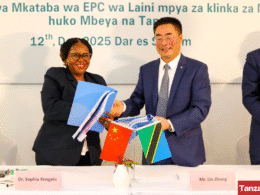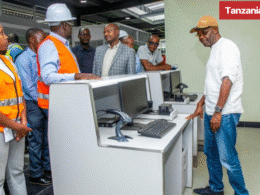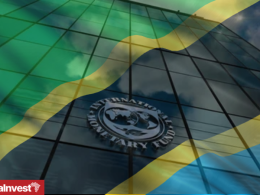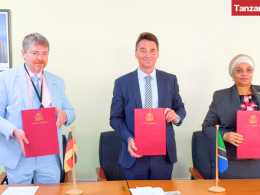The World Bank (WB) signed a grant agreement with the Government of Tanzania amounting to USD 4.5 million to finance the access to a sustainable water supply through improved solar pumping systems in 165 rural Tanzanian villages.
The financing will come via the Global Partnership for Results-Based Approaches (GPRBA), with funding from the Swedish Development and Cooperation Agency (SIDA) and the Netherlands Foreign Affairs Ministry (DGIS).
The climate-friendly solar pumping systems will replace the diesel generators, helping decarbonize off-grid water pumping in rural Tanzania and significantly reduce the cost of water extraction for at least 500,000 beneficiaries.
This is also the first attempt to leverage private sector financing in Tanzania’s rural water supply sector.
To supplement GPRBA’s grant and to diversify sources of funding, the project uses a blended finance approach, combining debt finance and output-based subsidies.
GPRBA funds will facilitate a 60% subsidy against loans for the Community-Based Water Supply Organizations (CBWSOs).
The debt finance will account for 40% of the investment and the CBWSOs will be able to repay the loan over four years with additional money made available by eliminating the use of diesel fuel.
In addition, an innovative mobile-banking payment platform will be piloted to manage revenue collection from water sales and loan payments from participating CBWSOs directly to the participating local bank.
The funding also includes a technical assistance component for training the CBWSOs to perform at a greater capacity for improved impact and to encourage their practice of loan repayment to increase their creditworthiness and ability to borrow for future activities.
“The introduction of solar water pumping systems is expected to significantly reduce operation and maintenance costs for the CBWSOs, providing them with financial resources to lower the price of water to users and expand service to presently unserved communities,” said Prof. Kitila Mkumbo, Permanent Secretary of the Ministry of Water.
For her part, Bella Bird, World Bank Country Director said “With this project, we are seeking to introduce new technologies at scale to better facilitate private sector financing and sustainable rural water supply. It is our hope that the combination of solar water pumps, pre-paid meters, chlorination, remote sensors, and 5-year service agreements will form the synergies which will shape a new era for the sector.”
Slightly more than half the population of Tanzania is estimated to have access to an improved water source, with stark differences between urban areas (about 79% in 2010) and rural areas (about 44% in 2010).
Projections indicate that by 2025 Tanzania will experience water stress (defined as average per capita water resources below 1,500 m3) due to population growth and the resulting increase in consumption.











